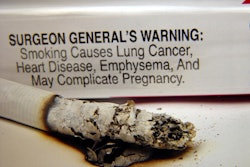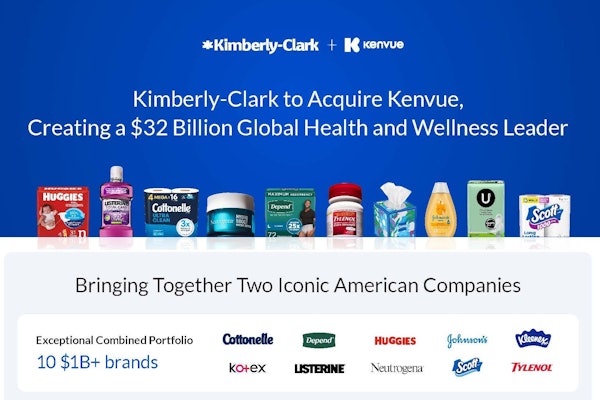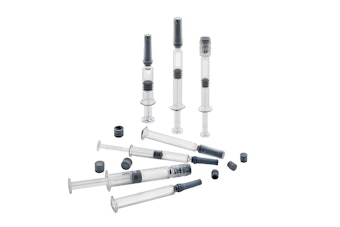This content was written and submitted by the supplier. It has only been modified to comply with this publication’s space and style.
FDA enforces all laws and regulations related to “Front of Package” labeling and Nutritional Facts Panels. This applies to both imported and domestic products. According to Benjamin L. England, of FDAImports.com, LLC, despite NLEA being issued in 1994, “&hellipthe new Import Alert makes it clear FDA is substantially increasing its enforcement of food manufacturers and importers, under this statute. FDA will stop importers from selling products with illegal claims on their labels.”
Many manufacturers have already been placed on Import Alert #99-20, being charged with the simplest violation that the FDA can target; labeling violations. In order for a product or manufacturer to be placed on IA 99-20—which automatically detains the product at the Customs Port of Entry even without physically examining the product—the product need only “appear” to violate NLEA. According to the alert, when FDA first discovers a product or manufacturer has violated NLEA, FDA may issue a Release “with comment” which instructs the importer that the violation must be remedied on future shipments. “In our experience,” stated Mr. England, “FDA often just refuses the product” resulting in expensive delays and shipping charges for the importer. IA 99-20 indicates that if the importer violates NLEA after the first offense, then FDA will place the importer on the import alert, which will cause the importer's products to be Detained Without Physical Examination and ultimate refused entry into the United States.
Manufacturers under Import Alert #99-20 have been charged pursuant to Section 801(a)(3) of the Federal Food, Drug, and Cosmetic Act: “[the product] appears to be misbranded within the meaning of Section 403 in that the label or labeling fails to bear the required nutritional information,” “bears an unauthorized nutrient content/health claim,” and/or “fails to bear required information [e.g. juice percentage, names of each ingredient and names of color additives].”
Under the 2009 Fiscal Year budget, FDA's appropriation increased 20%, with a significant portion of that budget being devoted to food safety, including domestic enforcement and enforcement upon importers at the ports of entry. Although the products put on DWPE under IA 99-20 may be perfectly up to standard according to the FDA regulations, FDA may never know it. When the FDA finds a labeling violation, further examination of the product is not necessary.
On March 3, 2010, Margaret Hamburg, Food and Drugs Commissioner, issued a Press Release notifying manufacturers of the need to review their labeling in order that they may be in compliance with FDA regulations. Hamburg emphasized 17 major food manufacturers that have been issued Warning Letters for the sole reason of violating the labeling provisions issued in the NLEA (1994). Some of these major food manufacturers include Dreyers Grand Ice Cream, Inc., Schwan's Consumer Brands, Sunsweet Growers, and Nestle, Inc. Although these 17 major food manufacturers have only been issued Warning Letters, the manufacturers under IA 99-20 have not been so fortunate. Instead, they are currently spending excessive amounts of money on storing their products at the boarder while they search desperately for solutions to the appearance of a labeling violation.
If you have been placed on IA 99-20, currently have entries subject to detention for alleged labeling violations, or are concerned about your firm's labeling compliance, let FDAImports.com, LLC show you 'the way through.” FDAImports.com, LLC is a consulting firm that can help you avoid Warning Letters from the FDA, as well as advise and correct violations that have caused you to be placed on Import Alert #99-20 and get your products back on the market. Don't let a Warning Letter or a Release with Comment turn into your firm Red Listed on Import Alert #99-20. FDAImports.com urges manufacturers who are in one of the above mentioned situations, or who desire to avoid such expensive business problems, to contact them promptly for advice tailored to your situation.
Many manufacturers have already been placed on Import Alert #99-20, being charged with the simplest violation that the FDA can target; labeling violations. In order for a product or manufacturer to be placed on IA 99-20—which automatically detains the product at the Customs Port of Entry even without physically examining the product—the product need only “appear” to violate NLEA. According to the alert, when FDA first discovers a product or manufacturer has violated NLEA, FDA may issue a Release “with comment” which instructs the importer that the violation must be remedied on future shipments. “In our experience,” stated Mr. England, “FDA often just refuses the product” resulting in expensive delays and shipping charges for the importer. IA 99-20 indicates that if the importer violates NLEA after the first offense, then FDA will place the importer on the import alert, which will cause the importer's products to be Detained Without Physical Examination and ultimate refused entry into the United States.
Manufacturers under Import Alert #99-20 have been charged pursuant to Section 801(a)(3) of the Federal Food, Drug, and Cosmetic Act: “[the product] appears to be misbranded within the meaning of Section 403 in that the label or labeling fails to bear the required nutritional information,” “bears an unauthorized nutrient content/health claim,” and/or “fails to bear required information [e.g. juice percentage, names of each ingredient and names of color additives].”
Under the 2009 Fiscal Year budget, FDA's appropriation increased 20%, with a significant portion of that budget being devoted to food safety, including domestic enforcement and enforcement upon importers at the ports of entry. Although the products put on DWPE under IA 99-20 may be perfectly up to standard according to the FDA regulations, FDA may never know it. When the FDA finds a labeling violation, further examination of the product is not necessary.
On March 3, 2010, Margaret Hamburg, Food and Drugs Commissioner, issued a Press Release notifying manufacturers of the need to review their labeling in order that they may be in compliance with FDA regulations. Hamburg emphasized 17 major food manufacturers that have been issued Warning Letters for the sole reason of violating the labeling provisions issued in the NLEA (1994). Some of these major food manufacturers include Dreyers Grand Ice Cream, Inc., Schwan's Consumer Brands, Sunsweet Growers, and Nestle, Inc. Although these 17 major food manufacturers have only been issued Warning Letters, the manufacturers under IA 99-20 have not been so fortunate. Instead, they are currently spending excessive amounts of money on storing their products at the boarder while they search desperately for solutions to the appearance of a labeling violation.
If you have been placed on IA 99-20, currently have entries subject to detention for alleged labeling violations, or are concerned about your firm's labeling compliance, let FDAImports.com, LLC show you 'the way through.” FDAImports.com, LLC is a consulting firm that can help you avoid Warning Letters from the FDA, as well as advise and correct violations that have caused you to be placed on Import Alert #99-20 and get your products back on the market. Don't let a Warning Letter or a Release with Comment turn into your firm Red Listed on Import Alert #99-20. FDAImports.com urges manufacturers who are in one of the above mentioned situations, or who desire to avoid such expensive business problems, to contact them promptly for advice tailored to your situation.
Companies in this press-release






















